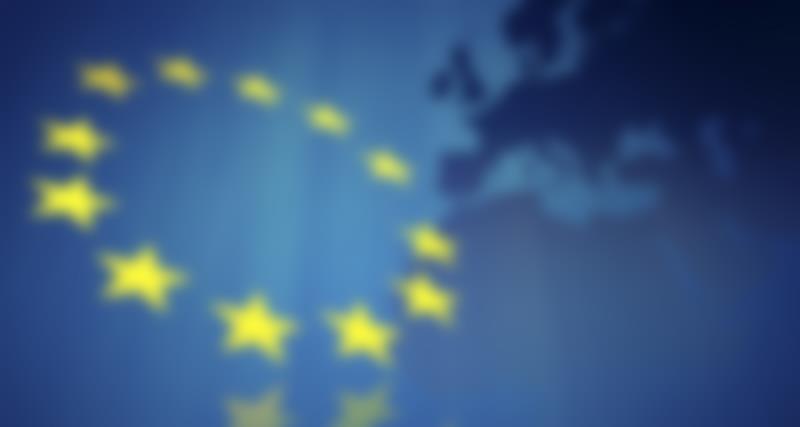Following weeks of negotiations among the European Parliament’s political groups regarding the Commissioner-designates, the designates finally received the green-light from MEPs during a plenary vote in the European Plenary session on 27 November. Each one of the Commissioner-designates had already been approved by the relevant parliamentary committees earlier in November. The final hurdle was securing the backing of the full Parliament through a roll-call vote.
The results of the vote were historic: 370 out of 720 MEPs voted in favour, 282 opposed, and 36 abstained - marking the narrowest majority in EU history. By comparison, Ursula von der Leyen's College in 2019 secured 461 votes, while Jean-Claude Juncker's Commission received 423 votes when confirmed.
The Commission will take to office on 1 December for a 5 year term.
So, who are the new Commissioners?
Ursula von der Leyen – President of the European Commission
Von der Leyen is a German politician from the centre-right European People’s Party (EPP). After serving in various roles in the German federal government from 2005 to 2019, she became President of the European Commission in 2019. She is the first woman to hold the role. Von der Leyen was the driving force of the European Green Deal and the Farm to Fork Strategy, but her and her party, the EPP, has re-positioned itself as the party for farmers.
Christophe Hansen – Commissioner for Agriculture and Food
Hansen is a Luxembourgish politician belonging to the Cristian Social People’s Party and the EPP. After several years as a political adviser, he was an MEP and worked primarily on three Parliamentary Committees:
- as a member of the Committee on International Trade (INTA)
- as a substitute on the Committee on Economic and Monetary Affairs (ECON)
- as a substitute on the Committee on the Environment, Public Health and Food Safety (ENVI)
Hansen was also the European Parliament rapporteur for the post-Brexit Trade and Cooperation Agreement with the UK.
Hailing from farming roots in Luxembourg, Hansen has described himself as a ‘boots on the ground Commissioner’. Known for his collaborative approach, he is widely regarded as a unifying figure for the role. His cousin serves as Luxembourg’s agriculture minister.
Mr Hansen will have his work cut out for him for his first weeks in office, as he will have a deliver a new “Vision for Agriculture and Food” within his first 100 days in office. This vision is expected to likely to build on the recently finalised Strategic Dialogue on the Future of EU Agriculture.
Olivér Várhelyi – Commissioner for Health and Animal Welfare
Mr Várhelyi is a Hungarian lawyer affiliated with the right-wing, national-conservative Fidesz party in Hungary. He was previously European Commissioner for Neighbourhood and Enlargement. His appointment was not without controversy as he did not pass his first Parliamentary hearing, and a second round of questioning was required. Some key areas including reproductive rights and health preparedness were removed from his portfolio.
Animal welfare is anticipated to be a priority topic in this mandate, with the proposals on animal welfare during transport already published, and revisions to animal welfare at farm level – which may include a phase out of cages – and at time of slaughter expected over the coming years.
Maroš Šefčovič - Commissioner for Trade and Economic Security; Interinstitutional Relations and Transparency
Maroš Šefčovič is a Slovakian politician affiliated with the Socialists and Democrats. He was previously Vice-President for Interinstitutional Relations and Foresight and Executive Vice-President for the European Green Deal, following the resignation of Frans Timmermans. He will also be in charge of EU-UK relations, a critical portfolio in the post-Brexit era. This will be particularly important as the UK government seeks closer relations with the EU, which may include development of a Sanitary and Phytosanitary (SPS) or veterinary agreement.
Mr Šefčovič will have his work cut out for him with trade tensions with China ever growing, alongside ongoing trade negotiations, including Mercosur.
Wopke Hoekstra - Commissioner for Climate, Net Zero and Clean Growth
Mr Hoekstra is a Dutch politician from the conservative Christian Democratic Appeal party, part of the EPP. He previously worked for Shell before entering Dutch politics in 2011. In his Parliamentary hearing, he underlined his strong commitment to achieving climate neutrality by 2050 and confirmed he would present a European Climate Adaptation Plan.
Jessika Roswall - Commissioner for Environment, Water Resilience and a Competitive Circular Economy
Ms Roswall is a politician for the Swedish Moderate party, affiliated with the EPP. She has previously been Minister for European Union Affairs. The Conservative politician faced a tough Parliamentary hearing which resulted in the Greens demanding that the Swedish government send a new candidate. She was eventually confirmed as Commissioner following an agreement between the political groups.
The incoming Commissioner has committed to launching a circular economy package, which will include measures to stimulate the single market for waste and recycled materials. An EU strategy on water resilience is another of her priorities, with new measures expected to tackle water scarcity, especially in farming.
Teresa Ribera Rodríguez - Executive Vice-President for the Clean, Just and Competitive Transition
Ms Ribera previously served as Minister for the Ecological Transition and Deputy Prime Minister of Spain. During her hearing, she highlighted the importance of improving the EU’s resilience to extreme weather events and promise a European Climate Adaptation Plan. Her acceptance as Commissioner was not without controversy, with some political groups outlining that Ms Ribera is not up to the job following the Spanish Government’s response to catastrophic floods in Valencia in October.
